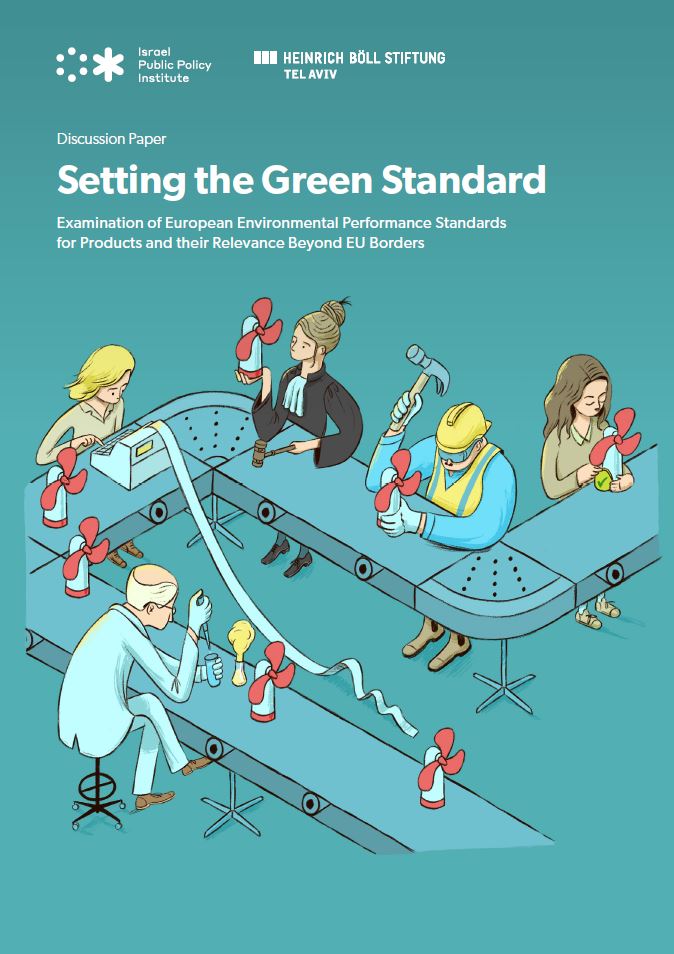Setting the Green Standard: Examination of European Environmental Performance Standards for Products and their Relevance Beyond EU Borders

Share this Post
The European Union (EU) is pioneering a transformative approach to sustainability, setting a global precedent through its regulatory frameworks and standardization efforts. This paper examines the EU’s role in embedding sustainability within product regulations, illustrating its significant influence both within the bloc and globally. At the heart of the EU’s strategy are the Ecodesign Directive, the Energy Labeling Regulation, and the forthcoming Ecodesign for Sustainable Products Regulation (ESPR), which emerges as a cornerstone, aiming to reshape product sustainability by encompassing durability, reparability, and the inclusion of recycled materials, thereby reducing environmental impacts throughout product lifecycles.
A distinctive feature of the EU’s approach is its combination of mandatory regulations and voluntary schemes, fostering innovation and setting standards that aspire to influence and shape global norms. This influence, known as the “Brussels effect,” extends the impact of EU standards beyond its borders, contributing to international standardization efforts with bodies like the International Organization for Standardization (ISO) and the International Electrotechnical Commission (IEC).
The EU’s quest to enhance environmental performance standards for products within its boundaries is an ambitious and long-term undertaking fraught with multiple challenges, most notably the alignment of national regulations with broader EU policies and ensuring robust market surveillance. These challenges demonstrate the complexities inherent in implementing wide-ranging sustainability policies and call for continuous refinement of market practices and strategic innovations to surmount these obstacles effectively. This paper delves into the governance processes that underpin the EU’s regulatory frameworks, including the intricate balance between environmental regulations and technical standards, and offers insights into the ways, in which the EU has sought to refine its internal market practices.
For policymakers outside the EU, the following paper provides insights into the EU’s sustainability paradigms, underscoring the pivotal roles of regulatory frameworks, innovation, and standardization in catalyzing market transformation. By distilling lessons from the EU’s framework and tailoring them to their respective contexts, non-EU jurisdictions could bolster their sustainability initiatives and join a worldwide march towards more sustainable patterns of product consumption and production.
Ultimately, the EU’s environmental product regulations present a transformative approach with the potential to foster a more sustainable, integrated, and efficient global market. The paper underscores the potential of harmonizing standards across borders to enhance global market consistency and catalyze a worldwide shift towards sustainability.
The opinions expressed in this text are solely that of the author/s and do not necessarily reflect the views of the Israel Public Policy Institute (IPPI) and/or its partners.
Download Full Publication
Setting the Green Standard: Examination of European Environmental Performance Standards for Products and their Relevance Beyond EU Borders

Share this Post

Digital Turbulence: Building a democratic society in times of digital turmoil
Authors: Jan Rau & Felix M. Simon “This [the Internet] is where democracy happens now and there is…

"The basis for democratic discourse in the age of social media is skewed"
Disinfo Talks is an interview series with experts that tackle the challenge of disinformation through different prisms. Our talks…

Algorithmic Bias in the Public Sector – A View from Austria
At first glance, an algorithm may be perceived as a more objective judge than a human. An algorithmic decision can be based on big…
